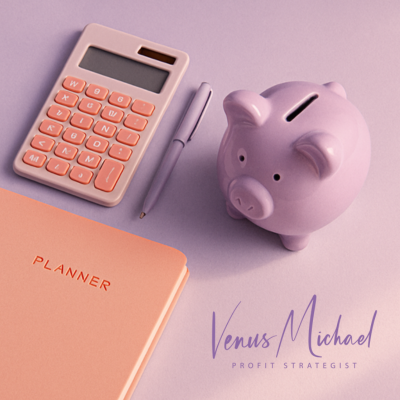The Real Cost of “I’ll Figure It Out Later”
DIY bookkeeping sounds resourceful when you’re building your business from scratch. It’s the classic “I’ll just do it myself” mindset. No outsourcing fees. No complicated meetings with accountants. Just you, your laptop, and a determination to keep costs low.
Here’s the problem: piecing it together as you go isn’t a strategy — it’s an expensive gamble. Every missed deduction, every late categorization, every untracked payment is like losing a puzzle piece. The more pieces you lose, the harder it is to see the complete picture of your business health.
And what are the hidden costs of DIY bookkeeping? It shows up where you least expect it: in lost time, bad decisions, and money left on the table.
The Hidden Cost of DIY Bookkeeping
Let’s break down the three most significant ways doing your own books can quietly sabotage your growth.
1. Time Is Not Free… And It’s Your Most Valuable Asset
Every hour you spend reconciling accounts, searching for receipts, or troubleshooting why your bank feed isn’t syncing is an hour you’re not creating, selling, or serving clients.
For photographers, that’s a shoot you could be booking.
For designers, that’s a client project you could complete faster (and potentially earn referrals for).
For service providers, that’s billable work you’re not doing — and money you’re not earning.
Educational takeaway: Even if you value your time at $50/hour, spending five hours a month on DIY bookkeeping results in a $3,000 annual opportunity cost. And that’s before you factor in the cost of mistakes.
2. Bad Data Leads to Bad Decisions
One of the most considerable hidden costs of DIY bookkeeping is decision paralysis. Without current, accurate numbers, you’re working in the dark.
Common scenarios:
-
You hesitate to invest in new equipment because you’re not sure you can afford it.
-
You underpay yourself “just to be safe,” which drains your motivation.
-
You delay hiring help, even though the work is overflowing.
When your books are weeks (or months) behind, you can’t see your actual cash flow. And without that clarity, every decision feels like a risk.
Educational takeaway: Business growth relies on real-time financial data. Waiting to “update the books later” means you’re steering without a map.
3. Tax Season Becomes a Stress Storm
Tax stress is where the hidden cost of DIY bookkeeping hits hardest.
-
You spend days digging for missing invoices.
-
You scramble to remember mileage or business expenses from months ago.
-
You overpay because you didn’t track deductible expenses… or underpay and face penalties.
Educational takeaway: Organized, up-to-date books spread tax prep out over the year — no April panic attacks, no guesswork, and no paying more than you owe.
Why Profit First Is the Antidote to DIY Chaos
The Profit First system changes how you see and use money. Instead of “spend and hope there’s profit left,” you build your business around paying yourself first and protecting your profit.
Here’s how it directly addresses the hidden cost of DIY bookkeeping:
-
Profit first, expenses second – no more draining your account before paying yourself.
-
Separate bank accounts for specific purposes – easy, built-in organization.
-
Weekly money check-ins – keep your data current so you can make quick, confident decisions.
-
Tax account ready all year – no more lump-sum panic.
Educational takeaway: Profit First is a money management system and a decision-making tool. It ensures that your bookkeeping supports growth, rather than just documenting the past.
From Chaos to Clarity: A Client Story
A local wedding photographer came to me with over 10 months of overdue bookkeeping. She was doing it all herself, in the late hours after editing photos, telling herself she’d “catch up soon.”
The hidden cost?
-
She was underpricing packages because she didn’t know her actual expenses.
-
She avoided marketing investments because she wasn’t sure she had the cash.
-
She lived with a low-grade anxiety about taxes that never went away.
We implemented Profit First, streamlined her bookkeeping, and set up a 15-minute Friday money date.
Within 90 days:
-
She was paying herself the same amount every week.
-
Her tax account had enough to cover the entire year.
-
She booked two higher-tier weddings because she could finally see her profit margins.
That’s what happens when you stop piecing it together.
Venus’ Bottom Line
Feeling behind on your bookkeeping doesn’t mean you’re bad at business. It just means no one gave you the tools.
At One21 Account-Ability, I help creative entrepreneurs like you build systems that take the guesswork out of money so you can stop piecing it together and start leading with clarity.
💛 Ready to feel clear and confident? Book a Clarity Call


